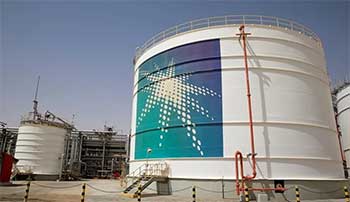BrahMos Missile
Why in NEWS ?
- The Defence Research and Development Organisation (DRDO) on September 30 th , 2020 successfully test-fired the BrahMos surface-to-surface cruise missile with an indigenous booster and air frame sector, along with other sub-systems made within the country.

About
- The supersonic missile is one of the prime precision-strike missiles used by all three forces, the Army, Navy and the Air Force.
- BrahMos surface-to-surface supersonic cruise missile featuring indigenous Booster and Airframe Section along with many other ‘Made in India’ sub-systems was successfully flight tested for designated range” at 10.30 am from the integrated test range at Balasore in Odisha.
- It is one more major step in enhancing the indigenous content.
- The BrahMos Land-Attack Cruise Missile (LACM) was cruising at a top speed of Mach 2.8. The missile weighs around 2.5 tonnes and has a strike range of approximately 300 km.
- The test comes at a time when BrahMos has been deployed in Ladakh as well as the Eastern Sector in Arunachal Pradesh to tackle any threats in the ongoing standoff with China.
BrahMos
- The BrahMos is a ramjet supersonic cruise missile of a short-range developed by Defence Research and Development Organisation (DRDO) and the Russian Federation’s NPO Mashinostroyeniya.
- BrahMos was named after two major rivers of India and Russia: Brahmaputra and Moskva.
- The technology used in this joint venture is based on the Russian P-800 Oniks cruise missile and similar sea-skimming cruise missiles from Russia.
- It is a two-stage (solid propellant engine in the first stage and liquid ramjet in second) air to surface missile with a flight range of around 300 km.
- However, India's entry into the Missile Technology Control Regime (MTCR) has extended the range of the BRAHMOS missile to reach 450 km-600km, a shade above its current MTCR capped range of 300 km.
- Brahmos is the heaviest weapon to be deployed on Su-30 MKI fighter aircraft, with a weight of 2.5 tonnes.
- Brahmos is a multiplatform i.e it can be launched from land, air, and sea and multi capability missile with pinpoint accuracy that works in both day and night irrespective of the weather conditions.
- It operates on the "Fire and Forgets" principle i.e it does not require further guidance after launch.
- Brahmos is one of the fastest cruise missile currently operationally deployed with speed of Mach 2.8, which is 3 times more than the speed of sound.
Blue Ammonia
Why in NEWS ?
- The blue ammonia is shipped for first time in the world from Saudi Arabia to Japan.

ABOUT
- Blue Ammonia shipped to Japan will be used in power stations to produce electricity without carbon emissions.
- Saudi Aramco, which recently made the announcement, produced the fuel, which it does by converting hydrocarbons into hydrogen and then ammonia, and capturing the carbon dioxide by-product.
- Japan will receive 40 tons of blue ammonia in the first shipment.
What is Blue Ammonia ?
- Blue ammonia is a feedstock for blue hydrogen, a version of the fuel made from fossil fuels with a process that captures and stores CO 2 emissions.
- Hydrogen from renewable energy that creates no emissions is known as green hydrogen.
Significance
- Ammonia can be burned in thermal power stations without releasing carbon emissions.
- That means it has “the potential to make a significant contribution to an affordable and reliable low-carbon energy future’’.
Importance for Japan and Saudi Arabia
- Japan aims to be a world-leader in the use of hydrogen, which is contained in ammonia.
- The country has committed to reducing its greenhouse gas emissions 26% by 2030 from 2013 levels, under the Paris climate pact.
- Saudi Arabia, the world’s biggest oil exporter, is increasingly trying to counter its reputation for producing dirty energy.
- In recent months, Aramco has highlighted the low volume of greenhouse gases emitted from pumping Saudi crude, programs to boost gas production and plans to grow carbon-absorbing mangroves.
- U.S. firm Air Products & Chemicals Inc. signed an accord in July with Saudi-based ACWA Power International and the kingdom’s planned futuristic city of Neom to develop a $5 billion hydrogen-based ammonia plant powered by renewable energy.







